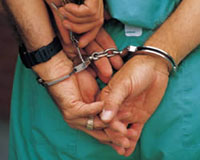| . |  |
. |
Kinshasa, Democratic Republic Of Congo (UPI) Jul 22, 2009 The 13-year-old war in the Democratic Republic of Congo is being fueled by foreign mining and trading companies that are buying minerals from suppliers linked to the various armies plundering the Central African treasure house, according to a watchdog group. Global Witness, a London-based non-governmental organization, identified several of the companies in a report issued Tuesday as Thailand Smelting and Refining Co., the fifth-largest tin producer in the world and Bangkok-based subsidiary of Britain's metals giant Amalgamated Metal Corp.; Afrimex of the United Kingdom; and Tradmet of Belgium. The group's 100-page report detailed how these and other companies regularly acquire minerals from the warring faction. It claimed that the Congolese National Army and rival rebel groups, often backed by neighboring states, "regularly cooperate with each other, carving up territory and occasionally sharing the spoils of illegal mining." The conflict in the DRC, formerly Zaire, erupted in 1996 when the tribal genocide in Rwanda spilled over into neighboring countries. This triggered a feeding frenzy of plunder as all sides seized the vast country's mineral wealth. Since 1996 more than 5 million people, the vast majority of them civilians, are estimated to have been slaughtered in the fighting between the National Army and rebel factions. The conflict, which at various times has involved Angola, Zimbabwe, Uganda, Namibia, Rwanda and other African states, is widely seen as a harbinger of future conflicts around the globe over dwindling resources such as water, minerals, timber and oil and gas. Large-scale smuggling of minerals, raw materials and precious metals has long helped fuel the Congo conflict, but international efforts to curb this lucrative trade have all foundered because of a lack of political will on the part of governments or because of the endemic corruption that plagues Africa as a whole. Global Witness called on the governments of countries that have companies trading in Congolese minerals to crack down on those helping fuel the war by their illicit dealings with the warring factions and on the African governments concerned to cut off warring parties' access to the mines and trade routes. Patrick Alley, Global Witness' director, declared: "Despite recent political and military developments, including the apparent rapprochement between the DRC and Rwanda, violence against unarmed civilians is continuing and countless lives are lost each day. "All the warring parties in the DRC are systematically using forced labor and violent extortion in mining areas." Alley added: "It is not good enough for companies to say they buy only from licensed exporters, when they know full well that their middlemen buy from armed groups. "The failure of governments to hold companies to account, of Burundi and Rwanda to restrict the trade across their borders, and of donors and diplomats to address explicitly the role of the mineral trade, have all contributed to the continuation of a conflict that has killed millions and displaced many more." He concluded: "Breaking the link between minerals and violence must be an integral part of the solution -- not something that is looked into once the peace is achieved." All the warring factions control different mining regions in eastern Congo and "violently exploit civilians to retain access to valuable minerals," Global Witness reported. These include cassiterite, or tin ore, and coltan, the ore from tantalum, which are used to manufacture mobile phones, computer components and other electronic equipment. The DRC is the world's largest producer of cobalt ore and is a major producer of copper and industrial diamonds. It has significant deposits of tantalum, and in 2002 tin was discovered in the war-torn east. The country also contains gold, silver, zinc, cadmium, manganese, uranium, bauxite and iron ore. London-based Katanga Mining Limited owns the Liulu Metallurgical Plant, which has the capacity to produce 170,000 tons of copper and 8,000 tons of cobalt per year, making it the largest cobalt refinery in the world. Share This Article With Planet Earth
Related Links Global Trade News
 Namibia delays bail hearing in China graft case
Namibia delays bail hearing in China graft caseWindhoek (AFP) July 22, 2009 A Namibian court Wednesday delayed to next week a bail hearing for three people charged with corruption over a deal to buy security scanners from a firm linked to the son of China's president. "The date for bail applications is set down for next week July 28 and 29," magistrate Pieter van Pletzen ruled. The three accused, including the Africa representative for the state-owned Chinese fi ... read more |
|
| The content herein, unless otherwise known to be public domain, are Copyright 1995-2009 - SpaceDaily. AFP and UPI Wire Stories are copyright Agence France-Presse and United Press International. ESA Portal Reports are copyright European Space Agency. All NASA sourced material is public domain. Additional copyrights may apply in whole or part to other bona fide parties. Advertising does not imply endorsement,agreement or approval of any opinions, statements or information provided by SpaceDaily on any Web page published or hosted by SpaceDaily. Privacy Statement |